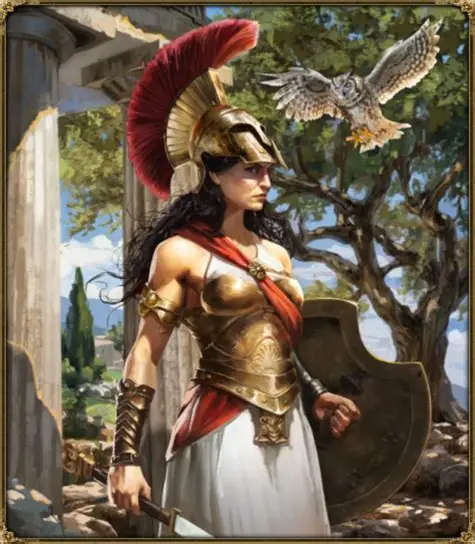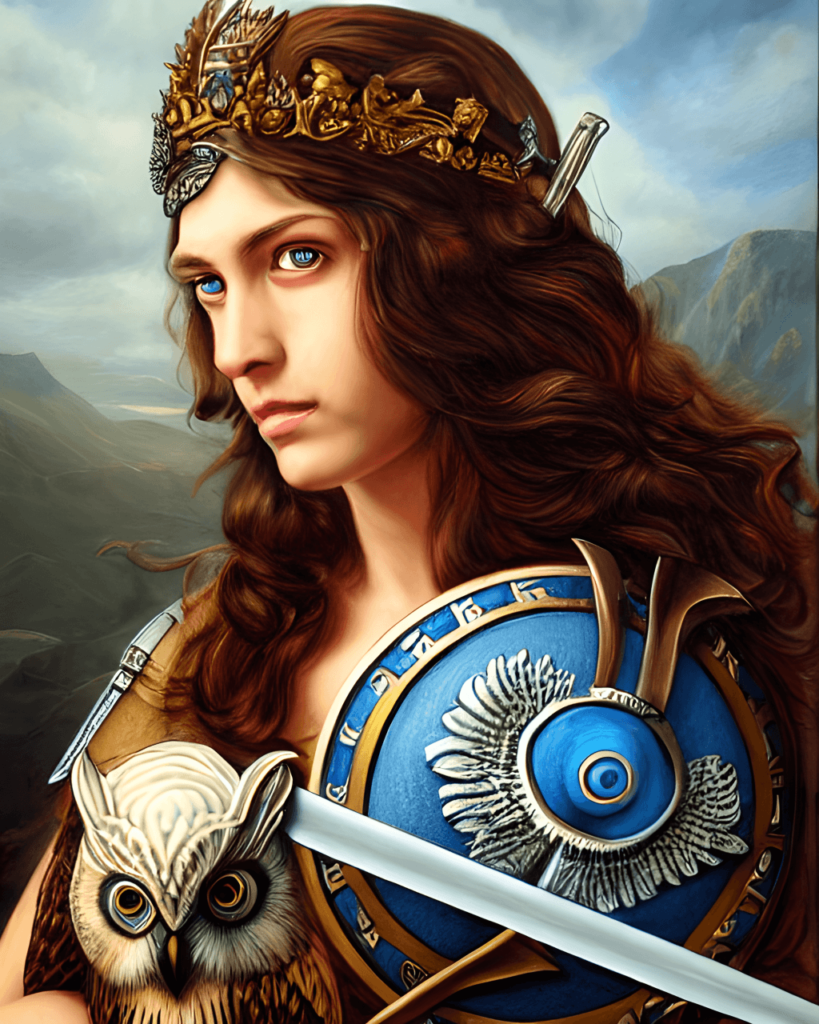Athena, one of the most revered deities in ancient Greek mythology, stands as a symbol of wisdom, courage, and strategic warfare. Known to the Romans as Minerva, she was worshipped widely across the Greek world, embodying intelligence, justice, and civic responsibility. Her role in myth and culture reflects not only the values of the ancient Greeks but also their understanding of knowledge and power.
Origins and Birth
According to Greek myth, Athena was born under extraordinary circumstances. Zeus, fearing that a child born to his first wife Metis would surpass him in power, swallowed her whole while she was pregnant. Later, Zeus suffered a terrible headache, and when Hephaestus split his head open with an axe, Athena emerged fully grown and armored. This miraculous birth emphasized her association with wisdom and divine intellect.
Attributes and Symbols

Athena is often depicted wearing a helmet and carrying a shield, the Aegis, sometimes adorned with the head of the Gorgon Medusa. She is also closely associated with the owl, symbolizing wisdom, and the olive tree, representing peace and prosperity. These symbols reflect the balance she embodied: both the strategist of war and the guardian of civilization.
Athena as Goddess of Wisdom
Unlike Ares, who represented the chaotic and violent side of war, Athena symbolized strategic warfare, discipline, and intelligence. She was revered as a patron of philosophers, statesmen, and craftsmen. Her wisdom extended beyond battlefields—she guided heroes with clever strategies, inventors with ingenuity, and rulers with sound judgment.
Protector of Cities

Athena’s connection to Athens, the city that bore her name, is among her most defining features. According to myth, she competed with Poseidon for the patronage of the city. Poseidon struck the ground with his trident, producing a saltwater spring (or a horse, in some versions), while Athena offered the olive tree, symbolizing peace, food, and wealth. The citizens chose Athena’s gift, and thus Athens became her sacred city. The Parthenon, built on the Acropolis, remains one of the greatest monuments to her worship.
Role in Mythology

Athena played a central role in many Greek myths:
- She guided Perseus in slaying Medusa by lending him her shield.
- She aided Odysseus during his long journey home in Homer’s Odyssey.
- She stood beside Achilles and other heroes in the Iliad, often as a divine strategist.
- She transformed Arachne into a spider after a weaving contest, showing both her skill in crafts and her stern justice.
Worship and Legacy
As one of the twelve Olympian gods, Athena was widely worshipped across Greece. The Panathenaic Festival in Athens celebrated her with processions, sacrifices, and athletic games. Her ideals of wisdom, justice, and civic responsibility made her a symbol of Greek cultural identity.
Even today, Athena remains a cultural icon. The owl of Athena continues to represent knowledge, and her image endures in literature, philosophy, and art as an embodiment of intelligence and strength guided by reason.
Conclusion
Athena was more than a goddess of war—she was a guardian of wisdom, a protector of cities, and a symbol of balanced power. Through her, the Greeks expressed the idea that true strength lies not in brute force, but in strategy, intellect, and justice. Her influence, immortalized in mythology and monuments, continues to inspire ideals of wisdom and leadership across generations.

